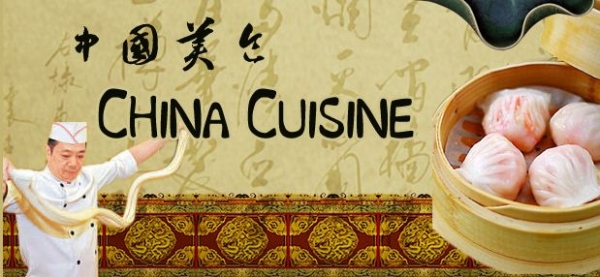 In the realm of cuisine, there are few countries that have as distinguished a history as China. China’s cuisine is fabled the world over for its tastes, textures and deliciousness.
In the realm of cuisine, there are few countries that have as distinguished a history as China. China’s cuisine is fabled the world over for its tastes, textures and deliciousness. Modern Chinese cuisine is as ubiquitous and so far-reaching on this globe that there is likely not a country on this planet that does not have at least one Chinese restaurant.
Yet China’s edible nation brand is not nearly as strong as it could be. So much that is labeled “Chinese food” is a hodge-podge of different styles thrown together without the dining audience possessing any deeper understanding of the flavors and regional influences to that cuisine.
In order to boost China’s edible nation brand through culinary cultural diplomacy, the Middle Kingdom could offer an incredible gastrodiplomacy campaign that educates hungry global audiences on the nuance and flavors that encompass Chinese cuisine today.
Moreover, given China’s stature and prominence on the global culinary stage, it is capable of pioneering new techniques in gastrodiplomacy to help further promote and educate global publics about the nuances of Chinese cuisine on a regional level. Meanwhile, China can use cultural diplomacy and gastrodiplomacy to further explore the far-reaches of Chinese cuisine around the world and how it has been synthesized into disparate cultures.
In this article, the author discusses the increasingly popular form of public diplomacy that is gastrodiplomacy, and some of the best practice strategies and tactics employed in its successful application as a form of cultural diplomacy outreach. Furthermore, the author will examine possible gastrodiplomacy strategies and programs for China to embark upon. The author proposes that a Chinese gastrodiplomacy campaign that focuses on various regional cuisines, highlights the distinct cuisine of China’s numerous minorities, engages different key global audiences in gastrodiplomacy and connects with the Chinese Diaspora around the globe, would strengthen the overall edible nation brand awareness of China and contribute to Chinese soft power through better understanding of China’s rich culture.
Defining Gastrodiplomacy
 Gastrodiplomacy is a burgeoning field of public diplomacy that helps communicate a country’s culture through its food. Public diplomacy is the communication of policies, culture and values with foreign publics. Within the canon of public diplomacy, gastrodiplomacy is a form of cultural diplomacy that educates global citizenry on a country’s culinary history and culture, and helps showcase different flavors and delicacies as a form of educational awareness building.
Gastrodiplomacy is a burgeoning field of public diplomacy that helps communicate a country’s culture through its food. Public diplomacy is the communication of policies, culture and values with foreign publics. Within the canon of public diplomacy, gastrodiplomacy is a form of cultural diplomacy that educates global citizenry on a country’s culinary history and culture, and helps showcase different flavors and delicacies as a form of educational awareness building. At the nexus of food and foreign policy, gastrodiplomacy uses a country’s culinary delights as a means to conduct public diplomacy and to raise nation brand awareness and the status of the edible nation brand. Thus, in creating a more robust nation brand through increased culinary and cultural awareness, gastrodiplomacy helps to increase soft power – the power of attraction.
Just as public diplomacy differs from traditional diplomacy in scope and audience, gastrodiplomacy differs from that of culinary diplomacy. While diplomacy consists of high-level communications from government to government, public diplomacy entails communication between governments, and non-state actors, to foreign audiences.
Similarly, culinary diplomacy exists as the use of food for diplomatic pursuits, including the proper use of cuisine amidst the overall formal diplomatic procedures. Culinary diplomacy is the use of cuisine as a medium to enhance formal diplomacy in official diplomatic functions such as visits by heads-of-state, ambassadors, and other dignitaries. Culinary diplomacy seeks to increase bilateral ties by strengthening relationships through the use of food and dining experiences as a means to engage visiting dignitaries.
In comparison, gastrodiplomacy is a public diplomacy attempts to communicate culinary culture to foreign publics in a fashion that is more diffuse; it takes a wider focus to influence the broader public audience rather than high-level elites. Gastrodiplomacy seeks to enhance the edible nation brand through cultural diplomacy that highlights and promotes awareness and understanding of national culinary culture with wide swathes of foreign publics. Moreover, as public diplomacy in the age of globalization transcends state-to-public relations and increasingly includes people-to-people engagement, gastrodiplomacy also transcends the realm of state-to-public communication, and can also be found in forms of citizen diplomacy.
Whereas traditional public diplomacy campaigns based on tactics of advocacy attempt to influence opinion directly, gastrodiplomacy seeks to create a more oblique emotional connection to culture by using food as a medium for engagement. Gastrodiplomacy is also not merely a one-off culinary promotion nor an act of culinary public relations, but rather a sustained, holistic attempt at education through the medium of cuisine to create better cultural understanding.
Essentially, gastrodiplomacy is an understanding that you do not win hearts and minds through
rational information, but rather through oblique emotional connections to influence long-term sentiments. Hence, a connection with audiences is made in the tangible sensory interactions as a means to engage more implicit public diplomacy via soft power and cultural connections that ultimately shape long-term public diplomacy perceptions in a manner different than targeted strategic communications.
Gastrodiplomacy Best Practices
 While the use of food as a basis for cultural interaction is a notion as old as time, and the role of food in the practice of diplomacy spans centuries, the modern practice of using cuisine as a form of public diplomacy is a recent affair. There are numerous recent case studies in the practice of gastrodiplomacy offered by Thailand, South Korea, Taiwan, Peru, Malaysia, Turkey and the United States of America.
While the use of food as a basis for cultural interaction is a notion as old as time, and the role of food in the practice of diplomacy spans centuries, the modern practice of using cuisine as a form of public diplomacy is a recent affair. There are numerous recent case studies in the practice of gastrodiplomacy offered by Thailand, South Korea, Taiwan, Peru, Malaysia, Turkey and the United States of America. Some best practices that have emerged from gastrodiplomacy campaigns include soft loan support to aid the establishment of restaurants overseas, as well as the facilitation of access to authentic ingredients. In the “Global Thai” program, Thailand even offered its own seal of quality to mark restaurants serving authentic Thai cuisine around the world.
Meanwhile, through the “Malaysian Kitchen for the World,” Malaysia set up night markets in cosmopolitan locales in London, New York and Los Angeles. This aspect of the Malaysian campaign helped increase the tangibility of the outreach through the combination of Malaysian cultural diplomacy and gastrodiplomacy.
Also, with a nod to the fast-growing trend of food trucks, the Malaysian campaign also sponsored a Malaysian food truck to help introduce Malaysian cuisine across New York City. In addition, Turkey took advantage of the popularity of the food truck phenomenon by conducting a public/private food truck venture to introduce rich, dark Turkish coffee to audiences in Europe and America.
Other campaigns like Peru and South Korea worked to tap into star power from famous chefs and high-ranking officials– such as in South Korea’s case, its previous First Lady. The U.S. Department of State similarly tapped into a network of star chefs to create the “American Chef Corps.”
And some gastrodiplomacy campaigns have sought to foster people-to-people connections through food like South Korea’s peripatetic “Bibimbap Backpackers,” who were sponsored to travel around the globe to cook up dishes of Korean bibimbap for new friends. Also, the U.S. State Department fostered exchange gastrodiplomacy by facilitating visits for young chefs from around the world to visit America to learn about new food cultures and techniques through the International Visitors Leadership Program.
Gastrodiplomacy is a manner of creating greater soft power- the power of influence, by making distinct culture more attractive through better understanding of all the culture entails. For countries like Peru and South Korea, the benefits of gastrodiplomacy have been profound as each respective nation’s cuisine has topped the charts of the popular food trend lists. More importantly, gastrodiplomacy-linked soft power can translate into increased tourism revenue. The popularity of Peruvian cuisine is expected to generate up to 1 billion dollars in gastronomic tourism in 2014, turning the soft power of gastrodiplomacy into hard power currency.
With the exception of the United States, most of the aforementioned case studies entailed “Middle Powers” seeking to raise their nation brand status and more brand awareness for their culture and cuisine amid a cluttered landscape on the global stage. Middle Powers often try to raise their edible nation brand by creating a buzz to help push their cuisines as being part of a fashionable new culinary trend.
For “Great Powers” like the United States, and for that matter China, the focus of outreach is a bit different compared to that of Middle Powers. While Middle Powers are trying to highlight their nation brand, and make it stand out in a cluttered global landscape, Great Powers have a brand that is already well-known and well-defined. Therefore, the gastrodiplomacy campaign of the U.S. sought to show more nuance and regional variation in the understanding of “American cuisine.”
Gastrodiplomacy for the Middle Kingdom
 China has shown some signs of connecting with the growing gastrodiplomacy trends. Already China has engaged in some of the gastrodiplomacy practices in both South America and North America. Following the boom in Chinese trade to Latin America, the Chinese government has worked with expatriate entrepreneurs and restaurant owners to set up Chinese restaurants across the region. With support of Chinese investment, Chinese restaurants have boomed from Colombia to Chile and everywhere in between in South America.
China has shown some signs of connecting with the growing gastrodiplomacy trends. Already China has engaged in some of the gastrodiplomacy practices in both South America and North America. Following the boom in Chinese trade to Latin America, the Chinese government has worked with expatriate entrepreneurs and restaurant owners to set up Chinese restaurants across the region. With support of Chinese investment, Chinese restaurants have boomed from Colombia to Chile and everywhere in between in South America. Similar to the Global Thai program, there have been some instances of the Chinese government sending teams of master chefs from China to Chile to help better train local Chinese chefs in the South American country. Across South America, Chinese food and culture has become more widespread. As noted in an article in the news outlet GlobalPost,“Twenty years ago, Chinese cuisine was concentrated in high income neighborhoods, but now it’s more spread out throughout the city, even in middle and low income areas,” said Luis Valenzuela, a Chilean architect and urban planning expert. With the spread of Chinese restaurants, Chinese food has become the entry point into a broader connection to Chinese culture.
As a Great Power with an already strong edible nation brand, China’s gastrodiplomacy goals are more akin with that of the United States compared to the Middle Power states. Much of the world has some conception of what “Chinese food” is, even if such notions are tied to foods that are hardly authentically Chinese.
In the realm of international relations, there is a concept know as “paradiplomacy,” which entails the diplomatic and public diplomacy interactions of sub-state actors such as regions or cities. For China to engage in a successful gastrodiplomacy campaign, it would be wise to dig down a level and promote the differences in regional cuisine by empowering its various regions and cities to engage in gastrodiplomacy paradiplomacy.
Already in New York City, food from Xi’an has grown increasingly popular thanks to the iconic Xi’an Famous Foods restaurant. China would benefit from gastrodiplomacy campaigns to educate on the more authentic side of Chinese cuisine by highlighting the different regional cuisines and focusing on educating on the nuances of cuisine from across China, and could be a pioneer in paradiplomacy by conducting gastrodiplomacy on a more profound regional and municipal level.
Chinese gastrodiplomacy would be best driven on efforts to help the global foodie class have a deeper understanding of the differences of cuisine from Sichuan from that of Fujian, and all the different regional flavors in between. Through promotion of regional authenticity, China has a capacity to bring the focus of its cuisine back to its more authentic flavors, and through strengthening regional brands make the overall edible nation brand stronger.
Moreover, given the rich culture of China’s 55 ethnic minority groups throughout the Middle Kingdom, China could tremendous gastrodiplomacy by promoting the uniqueness of cuisine of the various ethnic minorities spread across the country. Through cultural diplomacy and gastrodiplomacy, China could help communicate and showcase the rich cultural diversity that it possess.
Gastrodiplomacy at the Confucius Institutes
Through the Confucius Institutes, China has a wonderful cultural mechanism to conduct cultural diplomacy, and in some instances these institutions are engaging in gastrodiplomacy to conduct cultural outreach and create deeper understanding of regional culinary nuance. Already Confucius Institutes at universities such as University of California-Davis, Western Michigan University and the University of Nebraska have created classes associated with these cultural centers to offer Chinese cooking classes that educate on regional dishes and flavors. This is a good first step, but gastrodiplomacy is best practiced in a more systematic manner.
The next step would be for China to recognize that the Confucius Institutes could also be an important outlet to engage in gastrodiplomacy, and make these gastrodiplomacy efforts more systematic and sustained.
To China’s credit, it has engaged in some gastrodiplomacy via its international broadcasting networks. China Radio International, the international radio broadcasting outlet for China, hosts an engaging radio program called Chopsticks and Beyond that explores different regional tastes in China, as well as cross-cultural interactions between Chinese cuisine and other foreign cuisines in China. It would be worthwhile if the international television broadcasting outlet CCTV followed suit and conducted a dedicated Chinese cooking program on channel. Moreover, China would do well to sponsor shows on authentic Chinese cuisine on the plethora of food-focused television stations, or work to bring celebrity chefs to China to conduct documentaries on learning authentic Chinese cuisine in China.
Gastrodiplomacy to Shaolin
Inner city communities in places such as New York, Washington and Los Angeles remain key taste-makers for the whole of the United States. During the 1980s and 1990s, the popularity of Chinese culture in the inner-city in metropolitan areas across the United States of America became quite widespread through the proliferation of kung fu movies. Meanwhile, with the rise of the hip hop super groupWu-Tang Clan, Chinese culture through martial arts became extremely widespread in inner city America. With the popularity of the Wu-Tang Clan, their home base of Staten Island in New York became known as “Shaolin,” as their music popularized Chinese culture via martial arts and kung fu culture in the African-American experience.
Meanwhile, nearly every inner city neighborhood across the United States has a local Chinese restaurant that offers cheap, Americanized Chinese food from behind thick glass counters or in warming buffet trays.
Given the role that inner city America plays in shaping the cultural tastes across the United States, a cultural diplomacy investment in broader gastrodiplomacy education for inner city America could make for solid public diplomacy outreach for China. China could conduct culinary education classes in inner city America, as well as make available for donation instruments of classic Chinese cooking techniques. Such events could be hosted at inner city community centers, or in partnership with local Chinese restaurants in such neighborhoods.
The return on public diplomacy investment to conduct both cultural diplomacy and gastrodiplomacy outreach to broaden understanding of China in inner city America could prove substantial. Enhanced cultural diplomacy outreach through Chinese dance, martial arts and culinary education could provide for unexpected long-term public diplomacy benefits for China.
The Middle Kingdom and the Middle East
The best forms of public and cultural diplomacy are drawn from the iconoclastic experience that forces an audience to rethink its preconceived notions of the “other”; one interesting possible area of Chinese gastrodiplomacy that would be to promote the foods of traditional Chinese Muslim regions, particularly that of the Hui communities to the broader Middle East and North Africa.
In my own travels in China, I remember my surprise at finding delicious halal dishes of Hui cuisine in Xi’an. I can distinctly remember the surprise of my Muslim Arab friends in the Middle East when I described China’s mosques and halal cuisine, and their shock at the sheer number of Muslims in China– figures larger than their own countries.
Through centuries of trade, travel and cultural interaction, China has long been a place of tolerance for Muslim communities. Gastrodiplomacy could be a profound tool in helping to conduct an educational dialogue between China and the countries in the Middle East.
In gastrodiplomacy to the Middle East, China could showcase its traditional connections to showcase its own unique forms of halal cuisine borne out of the dining culture of the Hui community in different dishes like delicious lanzhou beef noodles, or the famous Xi’an delight paomo lamb soup with bread chunks.
China could also promote the cuisine of Xinjiang, with its succulent chuanr kebabs that could make the Arab world’s mouth water over the skewers of roasted lamb meat.
Already Muslim Malaysia has branded itself as a halal center, opening up waves of tourists from the Gulf and Iran to visit Kuala Lumpur try different flavors of halal foods that Malay cuisine offers.
Such dishes could serve as an entree into deeper cultural diplomacy to connect China with Islamic communities in the Middle East and North Africa.Moreover, the gastrodiplomacy connections made through introducing Chinese Muslim cuisine could help better educate the Islamic world to Chinese Muslim culture and identity.
Showcasing the Chinese Diaspora
Given the ubiquity of Chinese culture and cuisine around the world, a fascinating gastrodiplomacy project would be for China to explore the local variations of Chinese cuisine and how it has evolved in places with sizable Diaspora populations. Diasporic Chinese cuisine has even made its way back to China, with the recent opening of Fortune Cookie, an American-style Chinese restaurant in Shanghai.
China could conduct programs to look at the differences of Chinese food around the world, from the Chifas in Peru to the flavors of Chinese-Jamaican cuisine in the Caribbean isle to the subtle yet delicious Chinese-Malay cuisine known as peranakan. Such programs could take the form of photography exhibitions and cooking demonstrations in China and beyond to better examine and taste the impact that Chinese cuisine has had around the world.
The best public diplomacy incorporates two or more tangible elements of culture. As such, an interesting project would be to create a pavilion or food fair in China to share different Chinese Diaspora cuisines from around the world. China could conduct a fascinating photography exhibition for both for Chinese audiences in China and for its Diaspora to better understand how different Chinese communities around the globe have adapted local flavors into Chinese tastes.
Sponsoring a project could help Chinese Diaspora communities connect better with China through the opportunity to share the uniqueness of their own cuisine and culture, as well as introduce those in China to different variations of Chinese cuisine around the globe. Similarly, such an exhibit and program could make for compelling project to be shared through the Confucius Institutes as a means to better educate the entirety of Chinese cuisine around the globe.
Conclusion
Gastrodiplomacy is becoming a beneficial tool for countries seeking to enrich their nation brand by promoting cuisine as a medium to better understand culture. China already has a strong edible nation brand but it is shallow in actual understanding compared to the rich complexity of Chinese cuisine. China could conduct a number of gastrodiplomacy campaigns to strengthen both its nation brand and edible nation brand as a means to enhance its public and cultural diplomacy efforts.
Chinese cuisine is well-known throughout the world., yet despite its ubiquity, China’s edible nation brand lacks nuance and understanding. China can conduct gastrodiplomacy as a cultural diplomacy tool to better educate global audiences on China’s rich regional specialties and unique minorities as a means to create greater subtlety and understanding for what really entails cuisine from the Middle Kingdom. Furthermore, China can be a real pioneer in the realm of gastrodiplomacy by engaging in paradiplomacy to empower its various regions to highlight their respective cuisines.
Already China has conducted some of the tactics of gastrodiplomacy’s best practices, yet its efforts thus far remain ad hoc. What is required is a more sustained, more coordinated effort by China to conduct gastrodiplomacy through its various public diplomacy institutions like the Confucius Institutes and in its partnerships with Diasporic entrepreneurs.
Furthermore, China can use its cuisine to strengthen understanding in communities that already possess affinity for Chinese culture like that of inner city communities in the United States. In addition, Islamic Chinese cuisine could serve to build bridges between China’s Muslim community with the broader Middle East and North Africa.
Finally, China can use gastrodiplomacy to connect with and explore its Diasporic communities around the globe as a medium to understand innovations in Chinese cuisine borne out of cultural interactions around the globe.
As China seeks to better communicate its culture around the world, a key aspect remains its cuisine. China has the potential and opportunity to enhance its public diplomacy outreach and cultural diplomacy engagement through gastrodiplomacy, as well as serve as a pioneer in the role of culinary Great Powers conducting gastrodiplomacy.
A few months ago, I was approached by the policy journal China Policy Review to write a piece on Gastrodiplomacy for China. The piece was translated into Mandarin and published in China. Here is the original English version.
Paul S. Rockower is the Executive Director of Levantine Public Diplomacy, an independent public diplomacy firm. He is a leading expert in the field of gastrodiplomacy. Rockower has visited China on four different occasions. His favorite meal is spicy Chengdu-style frog hotpot.
Views: 72













